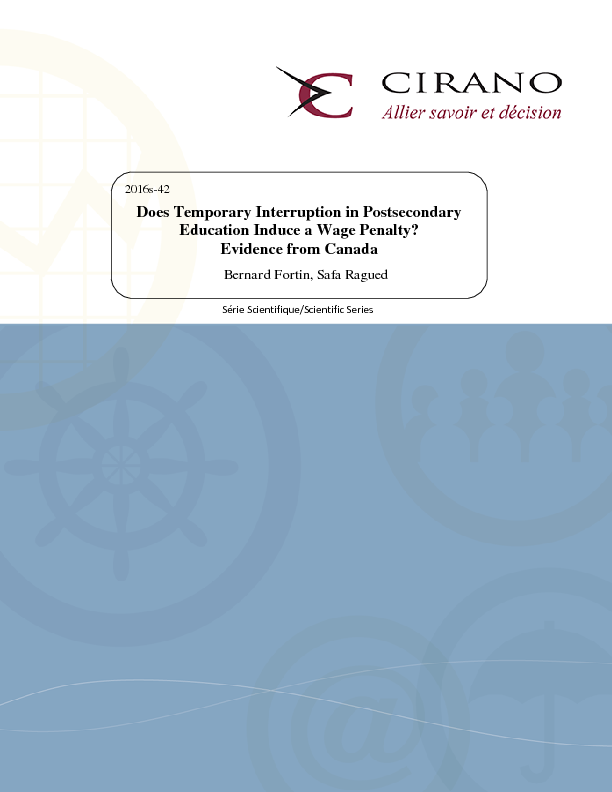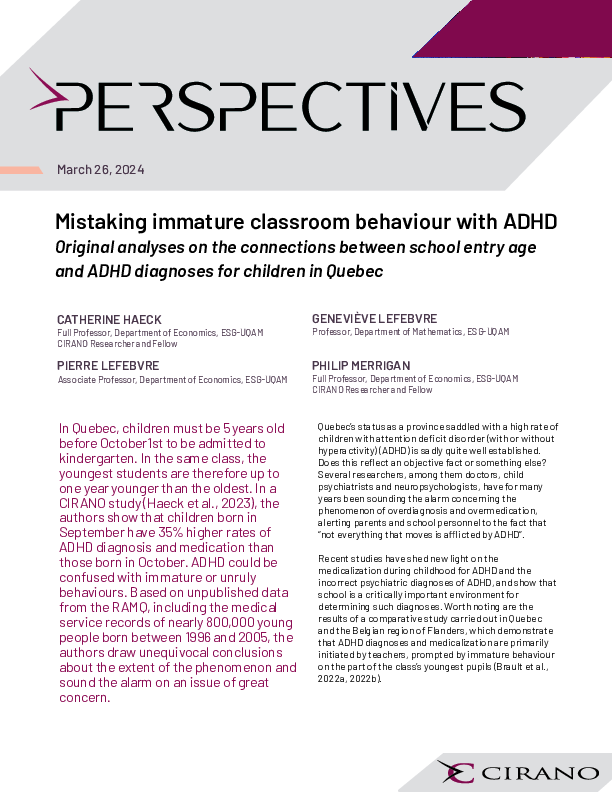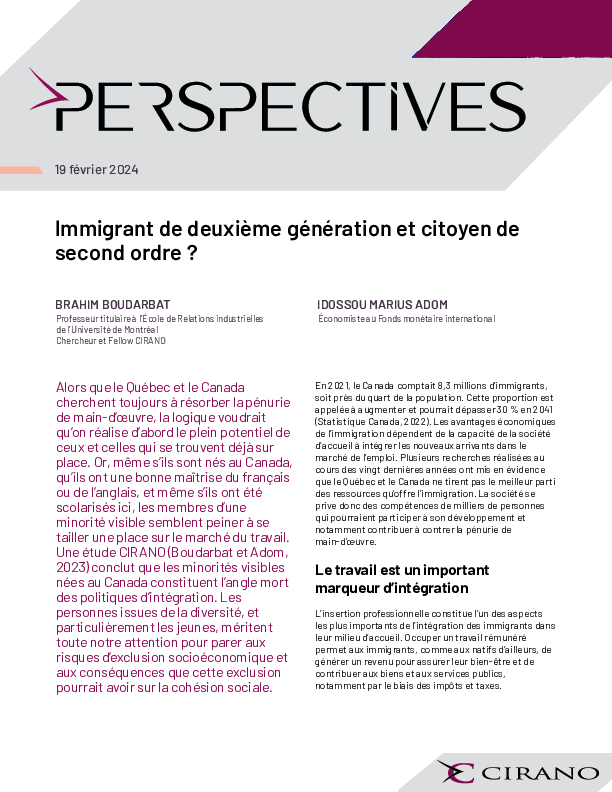Does Temporary Interruption in Postsecondary Education Induce a Wage Penalty? Evidence from Canada
Data
from the Youth in Transition Survey reveal that almost 40% of Canadian youth
who left post-secondary education in 1999 had returned two years later. This
paper investigates the extent to which schooling discontinuities affect
post-graduation starting real wages and whether the latter are differently influenced
by the reasons behind these discontinuities. We analyse this issue using data
from the 2007 National Graduate Survey. We take covariates endogeneity into
account using Lewbel’s (2012) generated instrument approach. The source of
identification is a heteroscedastic covariance restriction of the error terms
that is a feature of many models of endogeneity. To allow for individual
heterogeneity in the causal effect of various reasons for schooling
interruption, we also provide results from two-stage quantile regressions using
Lewbel’s generated instruments. Conditional on the levels of schooling and
experience, we find a positive effect on wages of temporary schooling
interruption for men who had held a full-time job during their out-of-school
spell(s). Both men and women witness a wage decrease if their interruption is associated
with health issues. Women also bear a wage penalty if their interruption is due
to a part-time job, to lack of money, or is caused by reasons other than
health, work, and money.
[ - ]




